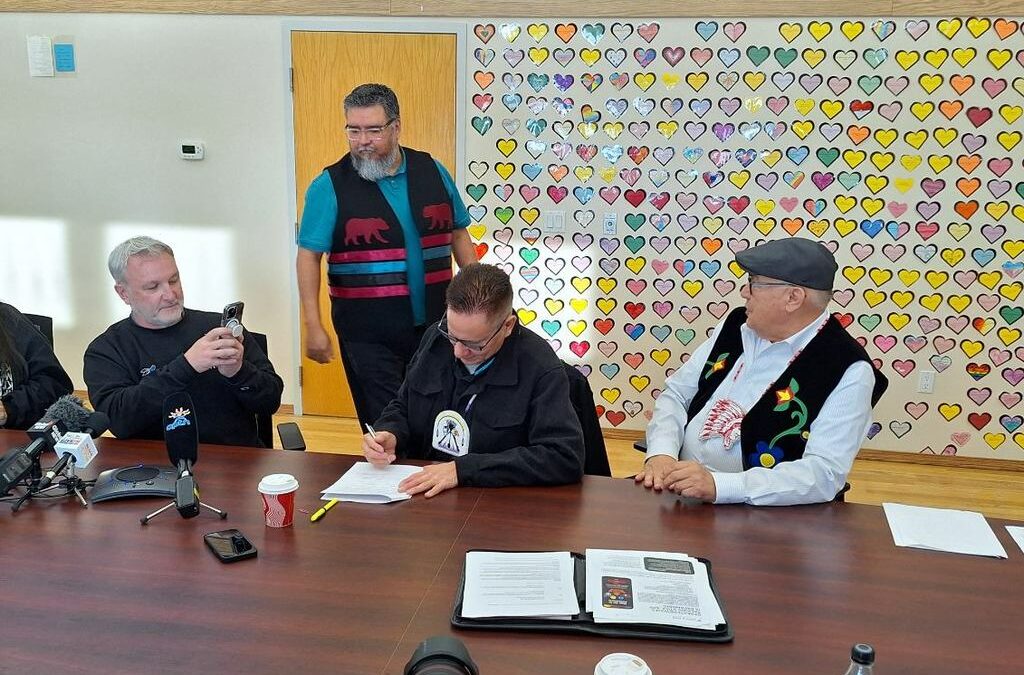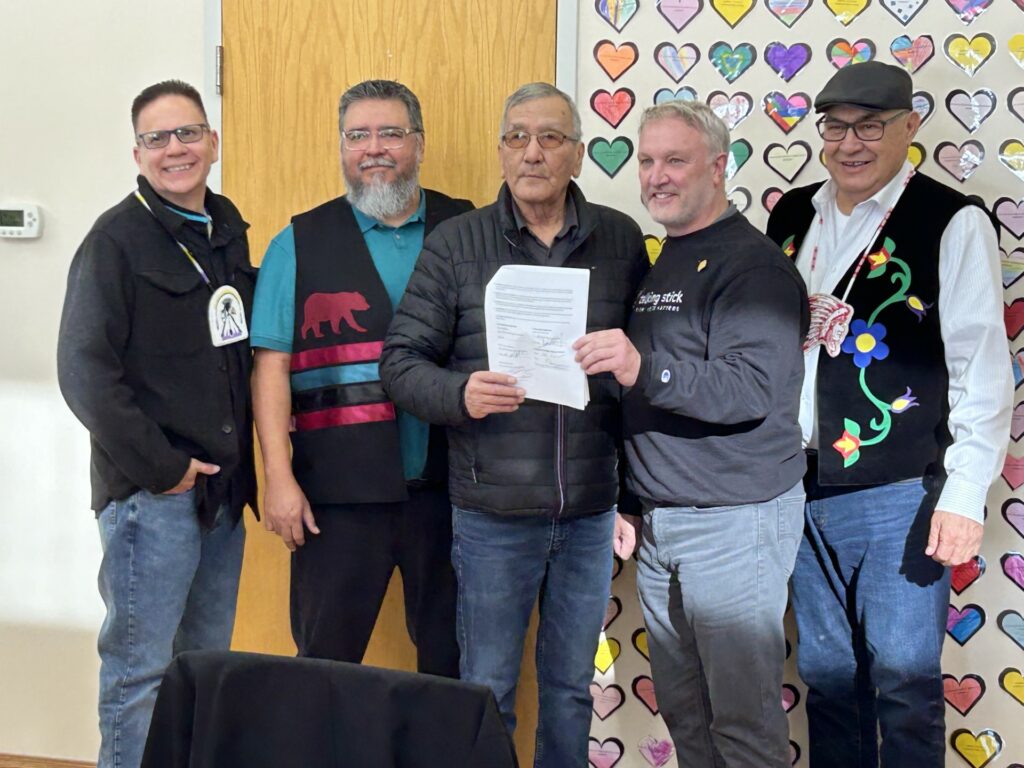First Nations in Saskatchewan now have a potential way to alert their members about emergencies in their communities.
Wednesday morning at the James Smith Cree Nation band office, FirstAlerts, which is an add on to the Talking Stick app was officially unveiled. The new alert system was designed by TryCycle Data Systems, which did so in collaboration with the Federation of Sovereign Indigenous Nations (FSIN).
TryCycle CEO John MacBeth said the alert system will be available to individual First Nations and First Nation organizations across Saskatchewan.
“All 74 communities will have their own access, all the Tribal Councils will have their own access and the FSIN as the PTO for the province will have access,” he said.
MacBeth explained the system will allow First Nations to alert their membership about a range of possible emergencies including natural disasters and missing persons. He said the decision around issuing alerts will be made at the local level.
“Every community is going to have their own process,” he said.
As part of the rollout process MacBeth said TryCycle will be working with First Nations to train those responsible for issuing alerts to ensure they are done in the most effective manner and to also protect against alert fatigue.
“Part of that training is what is an alert, working on that is going to be critical,” he said.
At the conclusion of the media conference, leadership from James Smith signed an agreement with TryCycle and the FSIN to officially implement the alert system in their community, making them the first band in the province to sign on.
(Leadership of James Smith Cree Nation with TryCycle Data Systems CEO John MacBeth holding up the signed agreement. Photo by Michael Joel-Hansen.)
James Smith Cree Nation was represented at the media conference by Peter Chapman Band Chief Robert Head. Head believes the alert system will be especially effective in regards to reaching younger people who are more likely to have phones. He added he also believes younger membership will be good about alerting others in their home about alerts.
“It’s going to be effective,” he said.
The Peter Chapman Band leader believes if the app had been in place when the mass stabbing happened it could have helped save lives by alerting community members about what was going on and informing them about what safety steps needed to be taken.
“I think it would have worked had we had it,” he said.
Head said it will likely take time for many members of the First Nation to truly feel secure, especially for those who experienced the violence first hand. He said the alert system will compliment the First Nation’s security service and RCMP in helping to provide members with a sense of safety.
“The app will provide another layer of security,” said Head.
The FSIN was represented at the media conference by Second Vice Chief Dutch Lerat. Lerat said there will be challenges for First Nations looking to implement the system in certain parts of the province due to a lack of cell phone coverage. He explained FSIN will work with First Nations who need infrastructure upgrades to push for those to happen. Lerat added other avenues of communication, like local radio could also be looked at to help get emergency messages out to the public in conjunction with the new app.
“They’ll be different forms and different avenues of addressing the communication system depending on the circumstances and the geographical area,” he said.
(Top Photo: Peter Chapman Band Chief Robert Head, middle, signs the agreement on behalf James Smith Cree Nation as Dutch Lerat, right and John MacBeth look on. Submitted Photo.)

